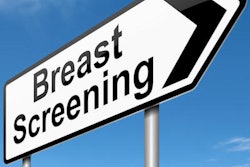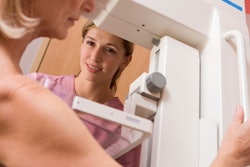
Breast cancer screening opponents released a new study in BMJ on 5 December calling into question the benefits of mammography in the Netherlands. They concluded that screening had little impact on advanced breast cancers, suggesting a marginal effect on breast cancer mortality. Breast screening advocates beg to differ.
 Dr. Philippe Autier.
Dr. Philippe Autier.The research team, led by Dr. Philippe Autier, an epidemiologist at the Strathclyde Institute of Global Public Health at the International Prevention Research Institute in Lyon, France, extracted data on breast cancer mortality for more than 20 years to determine the incidence of breast cancer stages. They found no significant decrease in the incidence of stage II to stage IV breast cancers and said 59% of lesions were overdiagnosed (BMJ, 5 December 2017, Vol. 359, pp. j5224).
"The data on advanced breast cancer in the Netherlands indicate that the Dutch national mammography screening program would have had little influence on the decreases in breast cancer mortality observed over the past 24 years," Autier and colleagues wrote. "This conclusion accords with the mounting evidence that randomized trials have overestimated the ability of mammography screening to reduce the risk of deaths from breast cancer in the entire life period after first exposure to mammography screening."
Mammography effects
Over the years, Autier and colleagues have repeatedly cast doubt upon the benefits of breast cancer screening. Just last month, they lauded changes to the screening program in France that give women more information on overdiagnosis and encourage women to talk to their doctors about whether they should be screened in the first place.
For the current study, the researchers examined incidence trends from 1989 to 2012. Since 1989, women 50 to 75 years old in the Netherlands have been invited for screening every two years. In 1997, screening was extended to women 70 to 75 years old. After 2006, the program introduced digital mammography.
The incidence of stage II to IV breast cancers in women who were 50 years or older was 168 per 100,000 in 1989 and 166 per 100,000 in 2012, but if breast screening worked, the number should have decreased more than that, the study authors wrote. The researchers also found the reduction in breast cancer mortality in women 50 years or older associated with screening ranges from 0% to 5%. In contrast, factors other than screening, such as improvements in breast cancer treatment, would have led to a 28% reduction in breast cancer mortality, according to Autier and colleagues.
"The likelihood of the predominant influence of treatment effectiveness on mortality reductions is supported by the observation that the timing and magnitude of decreases in mortality were similar among women aged less than 50 and among women aged 50 to 69," they noted. "Moreover, the noticeable reduction in breast cancer mortality in women aged less than 50 was independent of the incidence of stage II to IV cancers, and thus entirely resulted from improved treatments."
Overdiagnosis has steadily increased over time, with the extension of screening to women 70 to 75 years old, and with the introduction of digital mammography, they added. About one-third (32%) of cancers found in women invited to screening in 2010 to 2012 and about half (59%) of screen-detected cancers would be overdiagnosed, they added.
Proponents weigh in
As to be expected, breast cancer screening proponents disagree with Autier and colleagues' conclusions, writing breast cancer screening clearly and substantially reduces mortality and not changes in therapy on the basis of a small trend in reducing incidence of cancers of stage II or worse within the screening period.
"There is no data on incidence trends prior to the screening period so we do not know what the incidence would have been, overall and by stage, in the screening period if the screening had not happened," Dr. Stephen Duffy, from the Wolfson Institute of Preventive Medicine in London, told AuntMinnieEurope.com. "Similarly, there is no data on which tumors were exposed to screening and which tumors received which treatment. Thus, the authors' conclusions cannot be verified. There is no reason to doubt the results of randomized trials on the basis of these observations that are capable of interpretation in almost any way the reader cares to interpret."



















